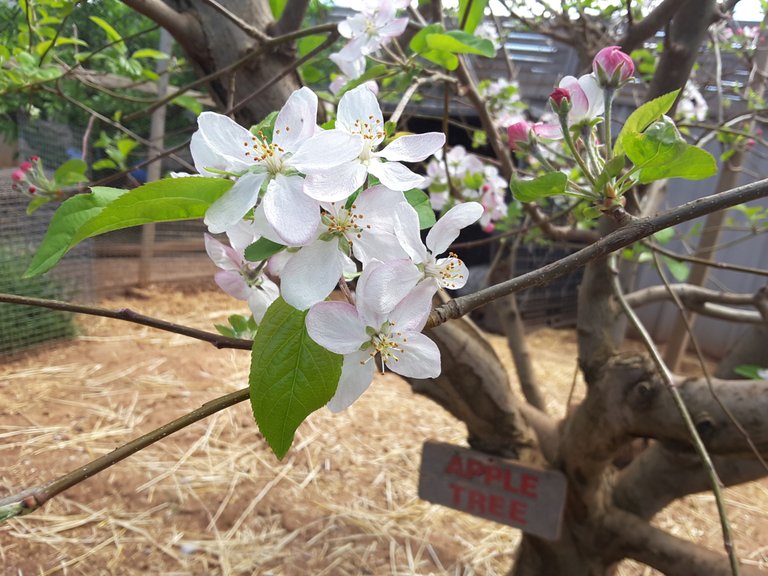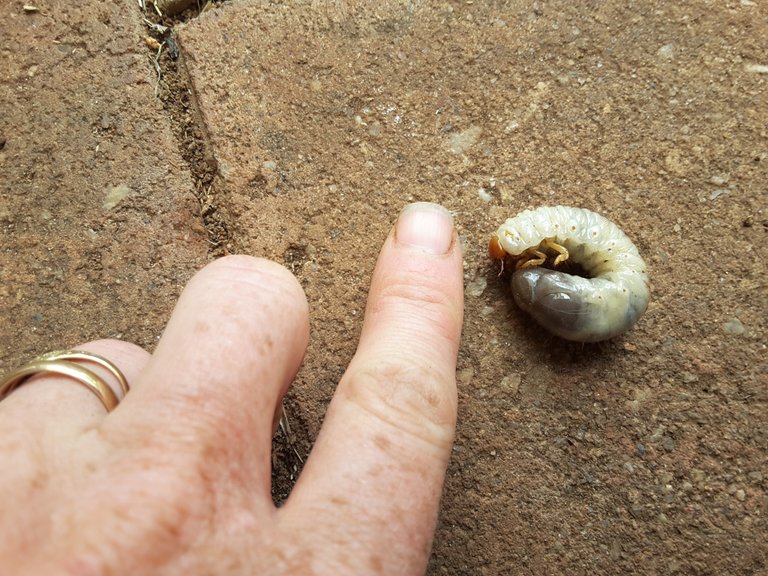Adapting Gardening Methods to the Climate and Situation

I grew up in England and my parents had an allotment garden with my grandmother, which was where I learnt most of my basic gardening skills without really realising it. I can't say my sister and I were particularly fond of helping with the gardening, other than having little goes at weeding or planting here and there. My preferred job was trying to keep the fire going to burn some of the excess waste and toughest weeds, which would survive the compost heap.
I started to enjoy gardening when I moved out and we had our own garden. It wasn't hard to grow things and apart from watering occasionally when we had rare dry weeks and weeding often, there wasn't much effort needed to grow things. Then we moved to South Australia and I began to learn a lot more about how much nutrition plants need to grow. Didn't they just need water?
So much of what works, or doesn't work, when it comes to gardening and households varies across the world, with our huge range of different climates. This doesn't just extend to what types of plants can be grown, it extends to best practices too.
There are more and more people returning to natural methods of gardening, which help to regenerate soils which have been stripped of their goodness. As people study different practices, they learn that many of our common methods for farming and growing are actually causing more harm than good and they're coming up with ways to take things back to more natural methods which are then touted as being the only way to go, especially when it's working well for them. Yet there are so many different approaches out there, which are obviously working for those using them, that it seems to make more sense to mix and match your methods until you find the best approach for your garden and climate.
Something that is really taking off is Back to Eden or mulch gardening. When I first came across these methods I thought I was saved! The first video I watched was from a guy in a hot climate who's farm was cracked and baked in the summertime. He started trying to imitate the forest floor in his orchard, by getting in copious amounts of chipped wood. Not just any chipped wood, but that which incorporated the leaves from the trees too. Hey find that with this thick layer of wood mulch, he no longer needed to water throughout the summer, because it retained moisture under that mulch layer. It was also much easier to pull any of the weeds that managed to find their way through.
This worked so well that he started to use the same method in the vegetable gardens and apart from initial watering when transplanting, he no longer needed to water there either. Each year, as this mulch broke down, the soil improved and his crops got better. He didn't till the soil any more and only disturbed it to plant and harvest.
Wherever he was, though, it obviously wasn't as dry a climate as the one we're in, because two or three days of around 25°C (77°F), after the winter rains had finished soaking the land, I dug down into 30cm (1ft) of mulch and it was bone dry at soil level! Back to Eden gardening calls for only half that depth in mulch.
Then there is the golden rule that you should never till the soil in Back to Eden gardening, because that damages the biome and realises carbon. Unfortunately, I have another issue than means not digging the soil in my garden would mean that I'd have little left growing. You see, in our garden we have an imbalance of curl grubs, which love to eat plant roots. These are the larvae of scarab type beetles, most commonly Christmas beetles in our area, although we also get African lawn beetles. While the Christmas beetles are native to the area, if left unchecked, they can decimate even native bushes.

I won't add even natural pesticides to the soil to deal with them, because that would harm all other bugs in the soil too. Besides, in manageable numbers and the right conditions, they can be beneficial. Hence, my approach is to dig the soil over after harvest, which unearths the big ones. These go to my chickens, but they can also help in a compost heap, because they eat dead plant material too. Once they are mostly cleared out then any seedlings will have the chance to grow and get big enough to withstand the odd nibble from any left behind or the next generation.
While I break some of the rules of Back to Eden gardening and mulch doesn't avoid the need to water, these methods certainly have helped make gardening a little easier. Slowly the carbon is building back up in the soil and the plants cope a bit better than they used to without that thick mulch layer. Because I need to dig each season. I try to avoid very coarse mulch in the veggie garden, as lots of large chunks of wood getting dug in can steal nitrogen from the soil as they break down. Another benefit with having dead plant matter building up in the soil is that this is also food for curl grubs, which means they don't necessarily go straight for the plant roots, making them less problematic during the growing season. This is a boon, as with more and more news of insect populations declining, I don't want to be decimating another population for the sake of the garden.
I think what I've learnt over the years is to be open to all gardening advice, but also realise that what works well for gardeners in one situation, may not work exactly the same in your own situation and could need some tweaking. However, there is nearly always something to be taken away from different methods.
Adapting our gardening skills, knowledge and style to our environment is hugely important and, in the end, so much easier!! It's like leaving a bad relationship and going WITH the flow, instead of head-banging and stressing endlessly.
Mulching is so important in Australia. Here in Thailand, it needs adapting and tends to be a haven for scorpion nests. LOL In the end I think ALL soils benefit from it.
Hope you're going to make this a whole series BTW... so many aspects of gardening need a serious tweak for a drier environment.
Oh gosh! A reason not to garden without gardening gloves!
I am thinking of writing more on dry climate gardening, however, it could be that it won't make it here if it's something I can send to Grass Roots.
I am having a hell of a time in Zone 10 South Florida in my raised beds.
Mushrooms even lol
I'm not well versed in the zoning system. Mushrooms suggests moisture and lots of it?
Correct, tons of moisture, tropical. This is my first time trying to garden down here.
So you'll have a big learning curve too!
Damn the size or that larvae!
I know what you should do, You should open a restaurant. A larvae restaurant. Aren't those the kind you can eat or are those poisonous?
I'll save all my other brilliant ideas for later. :D
Pretty sure most of Australia's grubs are edible. This is probably a small to medium size one. We've found ones of this type the size of your thumb, then some of the wood boring ones are even bigger. My dad found one in some wood he was cutting that was a kind of pink and yellow and didn't look as edible, but it apparently was.
Grub burger sounds neat. But I'm not sure if it sounds tasty.
Or pink grub noodle.
Grub salad.
Ew... 🤢
Let's not go there...🤢
:D
Appreciating the healing you bring to Mother Earth by learning to garden in HARMONY with the local environment. It matters.
Curated for #naturalmedicine by @artemislives.

We encourage content about health & wellness - body, mind, soul and earth. We are an inclusive community with two basic rules: Proof of Heart (kindness prevails) & Proof of Brain (original content). Read more here.
Our website also rewards with its own Lotus token & we'd love you to join our community in Discord. Delegate to @naturalmedicine & be supported with upvotes, reblog, tips, writing inspiration challenges for a chance to win HIVE and more. Click here to join the #naturalmedicine curation trail!
We also encourage you to follow our sister accounts, @lotusshares and @uplotus. We're also partnered with another amazing healing group, @adiwathrive - follow for dual language curation (English and Spanish), spiritual, musical and heart centred wellness!
Thank you @artemislives, appreciating you dropping by.
This is what happens when people are addicted to dead certainties and think that whatever they feel/is right for them is globally true XD
Gardening is like life. "Have you tried" works much better than "do this thing and if it doesn't work for you you're clearly defective because it works for me" XD
It's all about adapting, there might still be tons to learn and build upon the natural methods of gardening. Nice to read your experience!
Sometimes you really want a magic bullet and just to copy any effective method, but it's not to be.
Congratulations @minismallholding! You have completed the following achievement on the Hive blockchain and have been rewarded with new badge(s) :
You can view your badges on your board And compare to others on the Ranking
If you no longer want to receive notifications, reply to this comment with the word
STOPDo not miss the last post from @hivebuzz:
Very nice